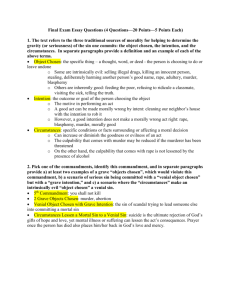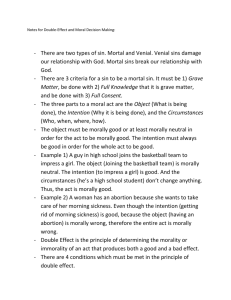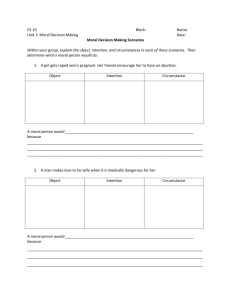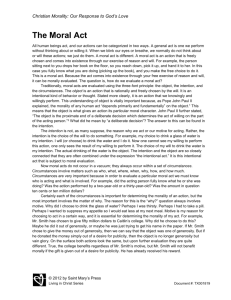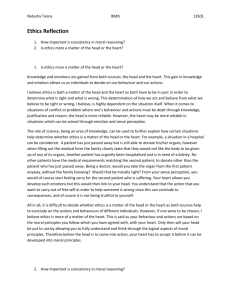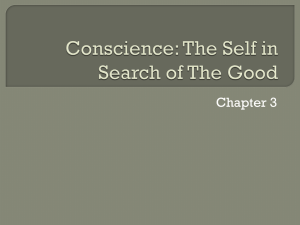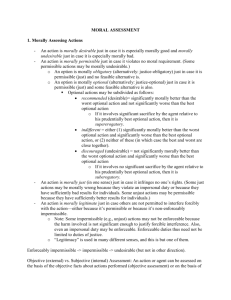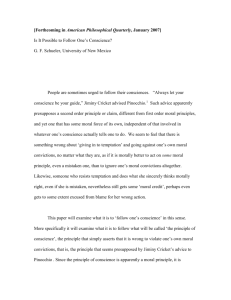103 Conscience calls
advertisement
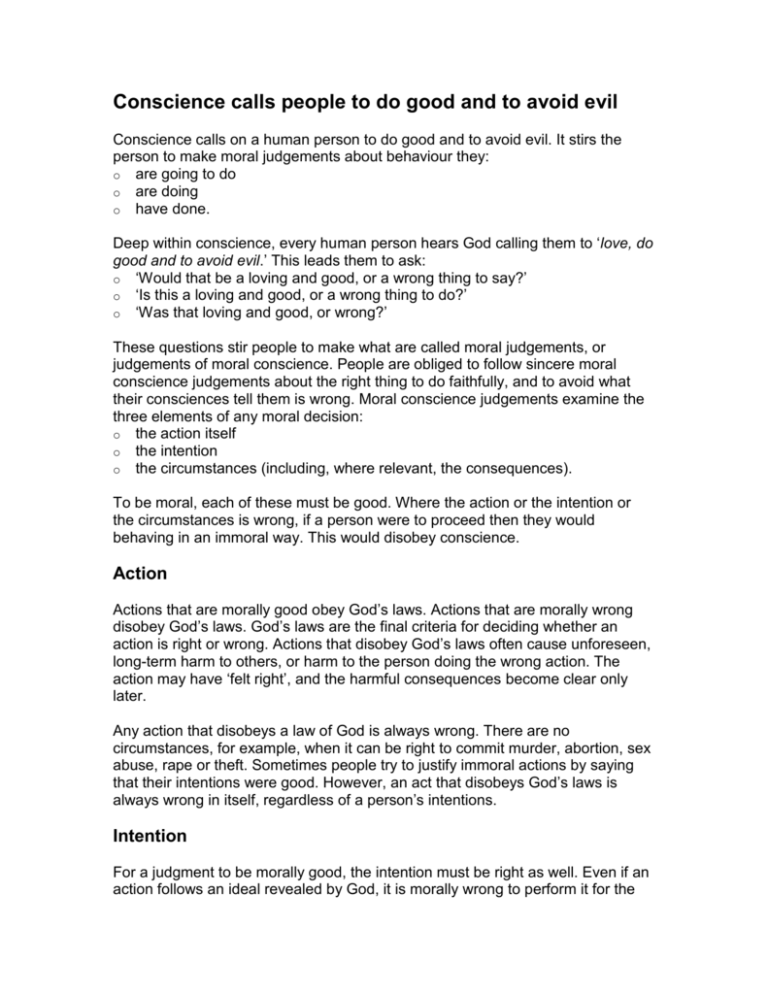
Conscience calls people to do good and to avoid evil Conscience calls on a human person to do good and to avoid evil. It stirs the person to make moral judgements about behaviour they: o are going to do o are doing o have done. Deep within conscience, every human person hears God calling them to ‘love, do good and to avoid evil.’ This leads them to ask: o ‘Would that be a loving and good, or a wrong thing to say?’ o ‘Is this a loving and good, or a wrong thing to do?’ o ‘Was that loving and good, or wrong?’ These questions stir people to make what are called moral judgements, or judgements of moral conscience. People are obliged to follow sincere moral conscience judgements about the right thing to do faithfully, and to avoid what their consciences tell them is wrong. Moral conscience judgements examine the three elements of any moral decision: o the action itself o the intention o the circumstances (including, where relevant, the consequences). To be moral, each of these must be good. Where the action or the intention or the circumstances is wrong, if a person were to proceed then they would behaving in an immoral way. This would disobey conscience. Action Actions that are morally good obey God’s laws. Actions that are morally wrong disobey God’s laws. God’s laws are the final criteria for deciding whether an action is right or wrong. Actions that disobey God’s laws often cause unforeseen, long-term harm to others, or harm to the person doing the wrong action. The action may have ‘felt right’, and the harmful consequences become clear only later. Any action that disobeys a law of God is always wrong. There are no circumstances, for example, when it can be right to commit murder, abortion, sex abuse, rape or theft. Sometimes people try to justify immoral actions by saying that their intentions were good. However, an act that disobeys God’s laws is always wrong in itself, regardless of a person’s intentions. Intention For a judgment to be morally good, the intention must be right as well. Even if an action follows an ideal revealed by God, it is morally wrong to perform it for the wrong intention. For example, if the truth was told about someone but the real intention were to get revenge by causing them serious embarrassment, the choice would be morally wrong. The same would be true if someone gives money to another person to buy drugs or alcohol which would lead to harm for that person. Circumstances, including relevant circumstances Sometimes an action can be morally right in itself, but to do it would be wrong in the circumstances. For example, swinging a golf club in a crowded lift would be wrong because of the harmful effects on others. The circumstances include consequences. If a person considers doing something that is morally acceptable in itself, but the consequences of that action would be against God’s law, it would be wrong to perform the action in these circumstances. A scientist, for example, may undertake an experiment in safe laboratory conditions with the intention of discovering new knowledge. However, the scientist may also know that the findings will be used by others for immoral purposes, such as to destroy innocent people, to commit a crime or to manipulate others. Faced with such consequences, the scientist would be acting morally by deciding to abandon the experiment.
